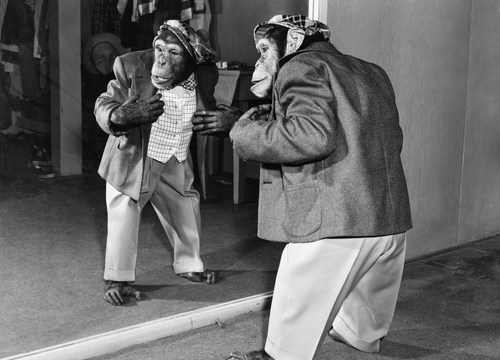Why You Shouldn’t Have Sex for Your Health

What’s the Big Idea?
Hey, did you know that sex improves your self-esteem? It’s also linked to increased bladder control, reduced depression, fewer colds, pain-relief from the rush of oxytocin that precedes orgasm, better teeth (seminal plasma contains zinc; who knew?), and “a happier prostate.” Plus, it burns calories.
Today we’re advised to orgasm guiltlessly and often, because sex is not just good, it’s good for you. One recent study found that men who reported the highest frequency of orgasm over a ten year period had half the death rate of those who climaxed less frequently — leading Forbes to ask eagerly, “Is sex necessary?”
“Who cares?” says Slavoj Žižek. These days, there’s nothing less daring or less satisfying than being a hedonist, the Lacanian philosopher told Big Think in a recent interview. Watch the video:
What’s the Significance?
“What is the model of today’s hedonism? A couple of days ago flying here, I read some airline journal that you get, and it had a long text praising sex — but in a way which was totally depressive. It said, ‘Make love as often as you can because it’s good for your blood circulation. It strengthens your heart.’ Then it had even an obscene theory how if you kiss a lot, especially French kisses, it’s good to strengthen your jaws, your mouth, and so on. This is a terrifying vision,” he argues.
It’s obscene, for Žižek, because of the way it transforms pleasure and/or love into an opportunity for self-improvement. And it’s terrifying for roughly the same reason: it suggests an overwhelming impulse to quantify the unquantifiable, to accrue life’s moments like capital rather than to experience awareness in a physical or emotional sense. In a tragic-comic twist, the sexual revolution seems to have made talking about sex not just acceptable, but boring.
“The only true hedonists, I think, are today, two kinds: drug users and cigarette smokers. And you see how under total pressure they are,” explains Žižek. (He doesn’t smoke because “screw the tobacco companies.”) “But nonetheless, there is something deeply symptomatic in our horror at the chain smoker, as if what bothers us is his or her enjoyment, as if you see there is a guy who has a singular passion and he’s ready to risk everything he has for pursuing that passion.”
Žižek’s take? “I find this rather nice, if you ask me.”
Video edited and produced by Jonathan Fowler and Elizabeth Rodd. Interview conducted by Megan Erickson. Image courtesy of Shutterstock.





